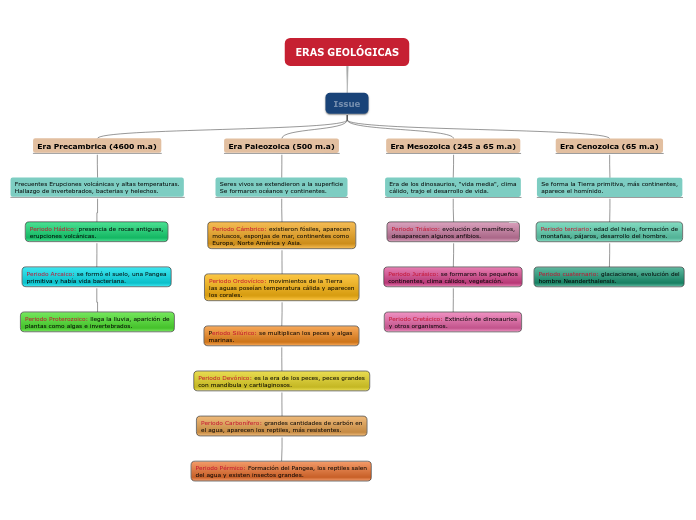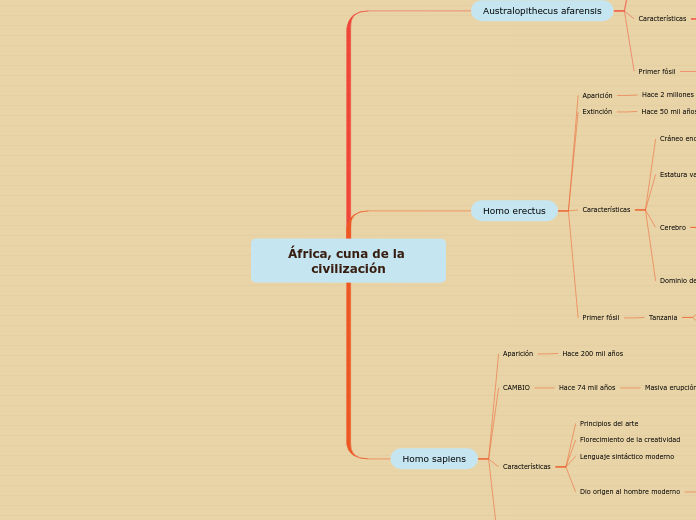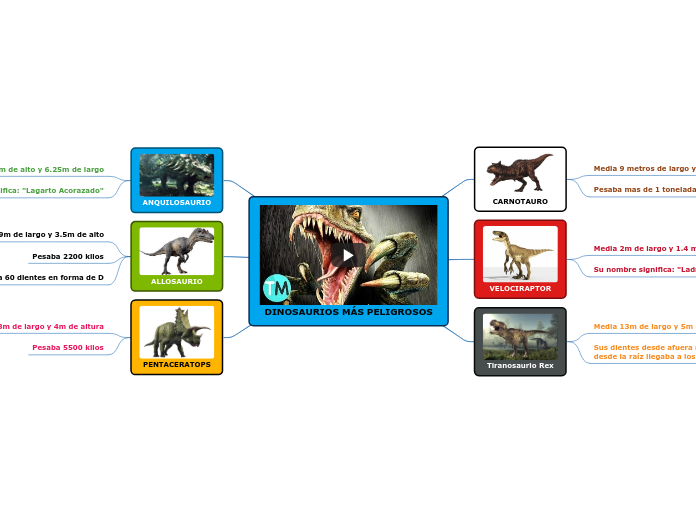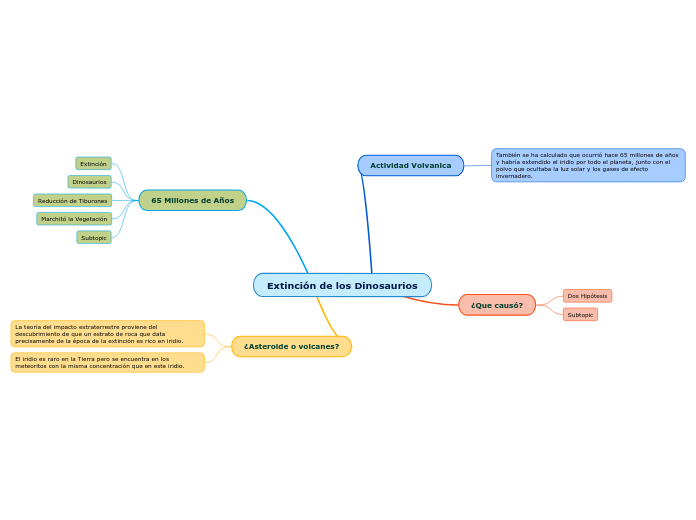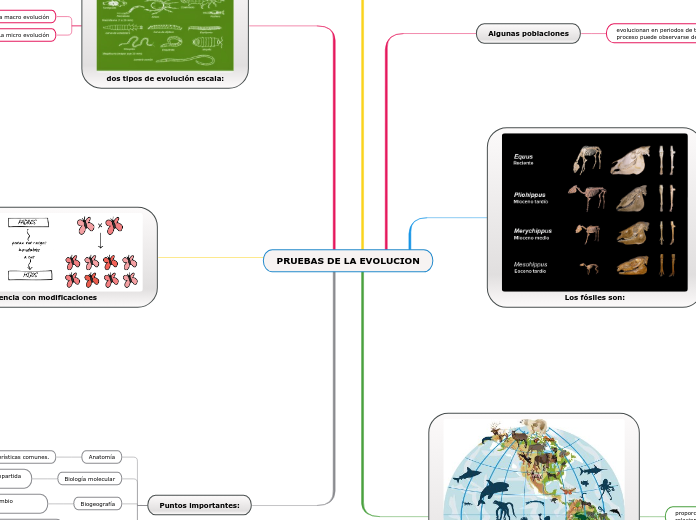ERAS GEOLÓGICAS
Type in the name of the multiple-perspectives text.
Example: Bridge to Terabithia by Katherine Paterson
Issue
Identify an important issue from the text that is being presented from different angles. Type it in.
Example: Jesse's drawing talent.
Era Cenozoica (65 m.a)
Decide on the fourth point of view
Type in the name of the last character whose perspective on the issue you are going to present.
Example: Leslie Burke, Jesse's new next-door neighbor, and best friend.
Se forma la Tierra primitiva, más continentes,
aparece el homínido.
Point of view
Type in a relevant quote that highlights the character's point of view. Try to follow a citation format: author's name, chapter, and page.
Example: I can't get the poetry of the trees,' he said. She nodded. Don't worry,' she said. You will someday. He believed her.' (Paterson, 4. 24)
Periodo terciario: edad del hielo, formación de
montañas, pájaros, desarrollo del hombre.
How is the viewpoint introduced in the story?
Choose an answer:
First person point of view - using the personal pronouns 'I' or 'we'Second person point of view - using the personal pronoun 'you'Third person point of view - using the third-person pronouns 'he', 'she' and 'they'Omniscient point of view - an all-seeing observer tells the story
Periodo cuaternario: glaciaciones, evolución del
hombre Neanderthalensis.
Era Mesozoica (245 a 65 m.a)
Whose character does the third point of view belong to?
Type in his/her name.
Example: Mr. Aarons, Jesse's father.
Era de los dinosaurios, "vida media", clima
cálido, trajo el desarrollo de vida.
What does the character think, say or do that suggests their perspective on the issue?
Type in a quote and try to maintain the citation format.
Example: 'He would like to show his drawings to his dad, but he didn't dare. (...) He'd thought his dad would be pleased. He wasn't. What are they teaching in that damn school? he had asked.' (Paterson, 2.8)
Periodo Triásico: evolución de mamíferos,
desaparecen algunos anfibios.
What kind of narration introduces the viewpoint?
Choose an answer:
First person point of view - using the personal pronouns 'I' or 'we'Second person point of view - using the personal pronoun 'you'Third person point of view - using the third-person pronouns 'he', 'she' and 'they'Omniscient point of view - an all-seeing observer tells the story
Periodo Jurásico: se formaron los pequeños
continentes, clima cálidos, vegetación.
Periodo Cretácico: Extinción de dinosaurios
y otros organismos.
Era Paleozoica (500 m.a)
Decide on the second point of view
Name the character (it can either be the main character or one of the supporting characters) whose point of view you are presenting.
Example: Miss Edmunds, Jesse's music teacher.
Seres vivos se extendieron a la superficie
Se formaron océanos y continentes.
Type in a quote that points out the character's position about the issue.
Try to follow a citation format: author's name, chapter, and page.
Example: 'She said he was unusually talented, and she hoped he wouldn't let anything discourage him.' (Paterson, 2. 8)
Periodo Cámbrico: existieron fósiles, aparecen
moluscos, esponjas de mar, continentes como
Europa, Norte América y Asia.
How is the viewpoint introduced in the story?
Choose an answer:
First person point of viewSecond person point of viewThird person point of viewOmniscient point of view
Periodo Ordovícico: movimientos de la Tierra
las aguas poseían temperatura cálida y aparecen
los corales.
Periodo Silúrico: se multiplican los peces y algas
marinas.
Periodo Devónico: es la era de los peces, peces grandes
con mandíbula y cartilaginosos.
Periodo Carbonífero: grandes cantidades de carbón en
el agua, aparecen los reptiles, más resistentes.
Periodo Pérmico: Formación del Pangea, los reptiles salen
del agua y existen insectos grandes.
Era Precambrica (4600 m.a)
Decide on the first point of view you are going to present.
Type in the name of the character (it can either be the main character or one of the supporting characters) whose point of view belongs to.
Example: Jesse Oliver Aarons, Jr., the main character of the novel, a fifth-grader living in a rural Southern area.
Frecuentes Erupciones volcánicas y altas temperaturas.
Hallazgo de invertebrados, bacterias y helechos.
Type in a relevant quote that highlights the character's point of view towards
Issue.
Try following a citation format: author's name, chapter, and page.
Example: 'Jesse drew the way some people drank whiskey. (...) Lord, he loved to draw. (...) When he was in first grade, he told his father that he wanted to be an artist when he grew up.' (Paterson, 2. 7)
Periodo Hádico: presencia de rocas antiguas,
erupciones volcánicas.
What type of narration introduces the viewpoint?
Choose an answer:
First person point of view - using the personal pronouns 'I' or 'we'Second person point of view - using the personal pronoun 'you'Third person point of view - using the third-person pronouns 'he', 'she' and 'they'Omniscient point of view - an all-seeing observer tells the story
Periodo Arcaico: se formó el suelo, una Pangea
primitiva y había vida bacteriana.
Periodo Proterozoico: llega la lluvia, aparición de
plantas como algas e invertebrados.
